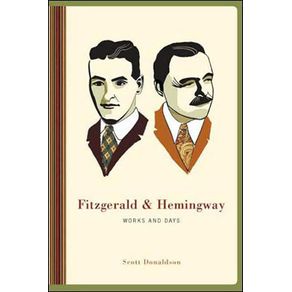F. Scott Fitzgerald and Ernest Hemingway might have lived as contemporaries, but our understanding of their work often rests on simple differences. Hemingway wrestled with war, fraternity, and the violence of nature. Fitzgerald satirized money and class and the never-ending pursuit of a material tomorrow. In the capable hands of Scott Donaldson, however, the affinities between these authors become brilliantly clear, thus reorienting our understanding of twentieth-century American literature. Known for his penetrating studies of Fitzgerald and Hemingway, Donaldson presents close to two dozen essays on the creative genius of these authors and the surprising overlap among their works. Since Fitzgerald and Hemingway both wrote fiction out of their experience instead of merely about it, Donaldson balances biography and criticism in each of his essays, with a deep commitment to close reading. He traces the influence of celebrity culture on the legacy of Fitzgerald and Hemingway, matches an analysis of Hemingway's Spanish Civil War writings to a treatment of Fitzgerald's left-leaning tendencies, and contrasts the averted gaze of Hemingway's fiction with the role of possessions in The Great Gatsby. Specific essays concentrate on the four most taught novels: Gatsby, Tender is the Night, The Sun Also Rises, and A Farewell to Arms, while others focus on the authors' short stories. Based on years of research in the Fitzgerald and Hemingway archives and flooded with Donaldson's trademark wit and insight, this irresistible collection takes the study of American literature in exciting new directions.



